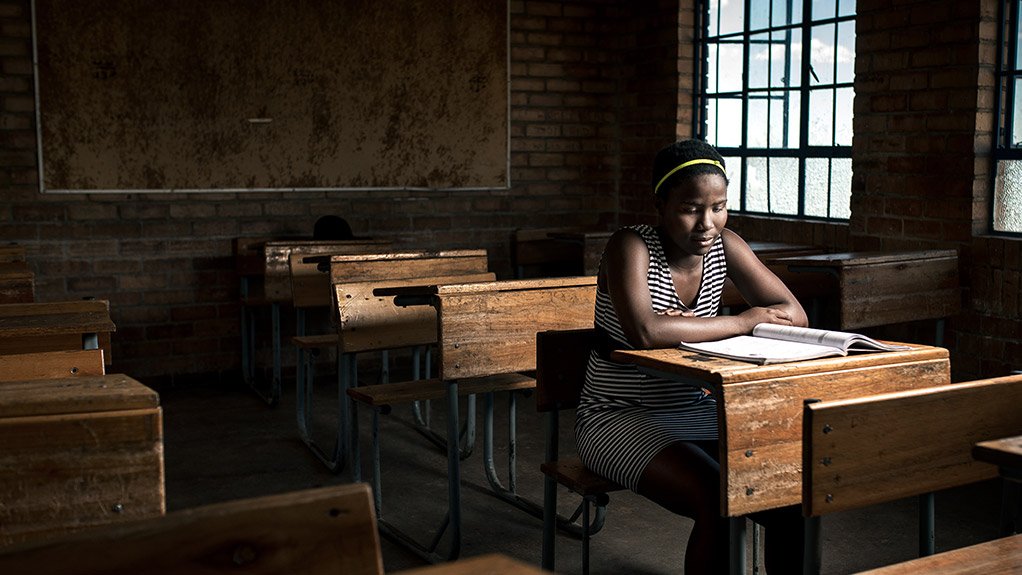With increasing indications that South Africa, on its current path, will not achieve its National Development Plan (NDP) ambitions, government is redirecting efforts to prioritise programmes that strengthen the alignment of the national budget, the medium-term strategic framework and the NDP.
This comes as Finance Minister Malusi Gigaba tables his first Medium Term Budget Policy Statement (MTBPS) on Wednesday, delivering estimated infrastructure expenditure of R948-billion over the next three years, R44-billion of which is expected to be spent by the education sector building new schools and refurbishing existing schools, libraries and laboratories.
“Government is embarking on a number of new initiatives in infrastructure in order to improve the quality of our infrastructure spending. This includes maintenance of existing infrastructure, improved procurement of infrastructure projects, and better conditional grant terms to eliminate inefficiencies and underspending,” he said during the MTBPS to Parliament on Wednesday.
With no additional funds available to increase baseline expenditure over the 2018 Budget, some programmes not aligned to the NDP or realising their outcomes will be cut to meet unanticipated spending pressures.
The Cabinet-approved Mandate Paper, tabled in August, aims to narrow government’s spending to seven priorities and focus areas, recognising that “resources are finite” and “hard choices” will need to be made about which government programmes should continue and which should be postponed or shut down.
The mandate also guides the refinement of departmental and public agencies’ plans and budget proposals and outlines the realisation of savings through the reduction of spending on consultants; establishing strict limits on contingent liabilities and litigation costs; ensuring that the initiatives of the Office of the Chief Procurement Officer take effect; and improving returns and value for money on State infrastructure projects.
The Medium-Term Expenditure Framework (MTEF) indicated that departmental submissions for the 2018 Budget complemented the mandate’s priorities, with several proposals that require large additional resource commitments.
The expenditure priorities under the mandate for the MTEF period, which will be further highlighted during the 2018 Budget, include job creation and small business development; youth development; infrastructure expansion and maintenance; land reform, smallholder farmer and agriculture development; comprehensive social security, education and skills; an integrated plan to fight crime; and advancing national interest in the Southern African Development Community, throughout Africa and through participation in the Brazil, Russia, India, China and South Africa bloc, as well as the Indian Ocean Rim Association.
National Treasury highlighted the revitalisation of township industrial parks and technology innovation hubs; the expansion of the agriparks programme; and deploying rural roads, broadband and water infrastructure.
Infrastructure maintenance also featured as a critical component.
This had followed the 14-point action plan announced in July to counter the negative headwinds sending South Africa into a downward spiral and to revive investment.
Feeding into the new infrastructure approach under the 14-point plan, was the now established Budget Facility for Infrastructure, which has started considering proposals in rail development, water, broadband, magistrate and high court construction and refurbishment.
The facility, run by the National Treasury and the Presidential Infrastructure Coordinating Commission, received 59 project submissions, requiring combined funding of R135-billion.
Several projects have been recommended for detailed appraisal.
A “stronger package of measures” to stimulate economic growth is also being developed, while the mitigation and management of fiscal and economic risks associated with State-owned entities continues.
Further, work on the Public Procurement Bill, which Gigaba plans to table in Parliament in 2018, is progressing.
The new bill aims to become a single overarching national procurement framework for all spheres of government and consolidate the currently fragmented procurement legislative landscape.
The bill is expected to outline set asides in the allocation of contracts for the protection or advancement of designated groups, including township and rural enterprises, black-, women- and youth-owned enterprises, cooperatives, and people with disabilities.
Meanwhile, other initiatives to promote transformation and competitive outcomes by implementing sector reforms, completed under the umbrella of the 14-point action plan, included the Preferential Procurement Policy Framework Act Regulations, which became effective on April 1, and the Financial Sector Regulation Act, which came into effect on August 21.
Government also continued to establish policy certainty by finalising key legislative and policy processes, while work was under way to license broadband spectrum.
A private-sector participation framework and a template to determine and cost developmental mandates have also been approved by Cabinet, while the Government Technical Advisory Centre had been commissioned to set up a fund to benefit small and medium-sized enterprises, with a particular focus on start-ups.
“Government continues to prioritise the expansion of network infrastructure to support the economy, alongside social infrastructure that serves community needs,” Gigaba said.
EMAIL THIS ARTICLE SAVE THIS ARTICLE ARTICLE ENQUIRY
To subscribe email subscriptions@creamermedia.co.za or click here
To advertise email advertising@creamermedia.co.za or click here











